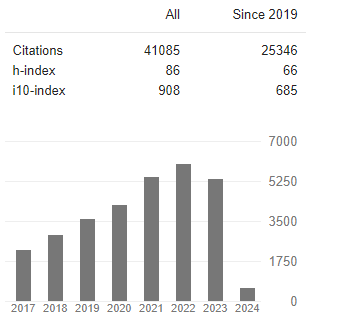Leveraging Mobile Learning Platforms for Flexible Education Delivery: Bridging Educational Gaps in Afghanistan
Abstract
Mursal Dawodi, Jawid Ahmad Baktash and Sayed Mohammad Reza Dawodi
The educational landscape of Afghanistan, besieged by infrastructural inadequacies and socio-political tribulations, presents a compelling case for the integration of mobile learning platforms. This article embarks on an exploratory voyage into the realms of mobile learning as a potential harbinger of educational transformation in Afghanistan. It delineates the pervasive educational challenges, underscores the technological innovations powering mobile learning platforms, and illuminates the pathways through which mobile learning can transcend the extant barriers to education. Enriched by real-world case studies, the narrative unravels the pragmatic lessons that can be harnessed to tailor mobile learning solutions to Afghanistan's unique context. The discussion further traverses the collaborative horizon, elucidating the synergistic interplay among academia, government, the private sector, and international bodies essential for the successful implementation of mobile learning platforms. The article also furnishes pragmatic recommendations, emphasizing the triad of policy formulation, infrastructure enhancement, and capacity building as cornerstone imperatives. The envisioned integration of mobile learning platforms augurs a paradigmatic shift towards a more accessible, inclusive, and resilient educational framework in Afghanistan, with far-reaching implications for socioeconomic development. Through a meticulous amalgamation of technology, policy, and collaborative endeavors, this article posits that Afghanistan stands on the cusp of an educational renaissance, with mobile learning platforms serving as a pivotal conduit towards this envisioned horizon.




